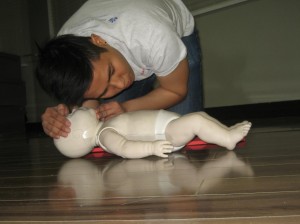
The event that an infant falls sick is normally one that poses great challenge to parents. The most common problems that babies get to display include cold, cough, vomiting and fever. Diaper rash and cradle cap are also common among young children. Most of the time, these problems can be simply treated and therefore considered to be minor. It is however important for the parents to be prepared for the eventuality of these infant problems manifesting themselves in the child.
It is vital that the parents equip themselves with the right knowledge on how to handle the situation. They should be able to tell whether the problems are serious or not, and also know what exactly to do. Parents in most cases should trust their intuition and seek medical attention as soon as the signs of the mentioned problems appear.
This article explains some of the common infant problems, their causes as well as what can be done in terms of treatment. The material posted on this page is for learning purposes only. If your child needs medical attention seek medical help immediately. To learn to recognize and manage serious emergencies enrol in a first aid and CPR course that involves infant emergencies.
Managing Infant Constipation
This is the condition that a baby develops when the normal squeezing pattern of the baby takes too long to get the right rhythm. This then makes the milk that the infant takes to settle in the stomach a little longer than anticipated and ending coming back up. Most of the cases of reflux get to disappear within the ages of four to twelve months. However, here are some of the signs that would warrant concern.
- Improper feeding.
- Frequent hiccups.
- Breathing problems and general congestion.
When these signs are discovered, a paediatrician should be sought out. In most cases they will recommend the use of medication to solve the problem. The mother or the caretaker of the infant can also get to help with the situation through ensuring that the infant is burped after every intake of milk, and keeping the infant in an upright position for at least twenty minutes after each feeding.
Managing Vomiting
Vomiting in infants is normally caused by an infection in the intestinal tract. This is always very sudden and can be accompanied by a fever or diarrhea. In two t three days, most of the infections and vomiting do go away. However, illnesses in infants should not be wished away, but other measures can be taken to ensure that the cases do not develop into other complications. A parent should always look for signs of dehydration in an infant. This is normally seen through the reduction in the number of wet diapers or decrease in saliva. If the baby is having difficulties in keeping down the milk or formula taken, electrolyte solutions come in to rescue. A single teaspoon of electrolyte even fifteen minutes should do the trick. A paediatrician should be consulted if the infant vomits the electrolyte too.
Managing Diarrhea
Diarrhea in infants is mostly caused by a virus. The single virus that is the source of most diarrhea in infants is known as rotavirus, and in mostly infects the infants during winter and is common with infants between the ages of six months to two years. Once it manifests itself, this virus can be kept on check through ensuring that the infant is properly dehydrated. A bout of diarrhea that takes longer than three weeks to disappear should raise some concern. If it occurs in the absence of a fever or a cold, the there are chances that the infant could be having an allergy reaction, probably to the milk consumed. The infant can then be put on a hypoallergenic formula.
This is a common problem among infants, especially as soon as they are introduced to solid foods. This is normally in the form of hard stool that creates a great deal of discomfort to the infant. Introduction to whole milk can also come with constipation. The best remedy for constipation is lowering the amount of solid food consumed as well as the amount of whole milk.